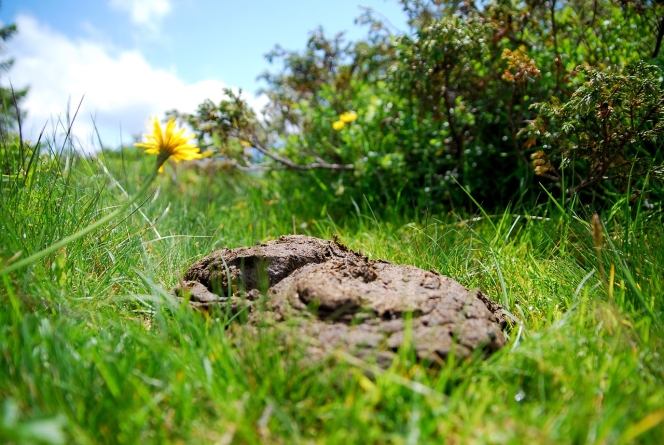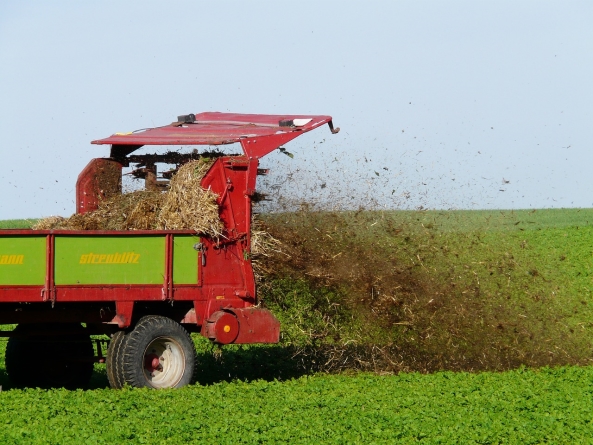
Throughout history, animal manure has been acknowledged as a valuable soil enhancer, playing a crucial role in enhancing soil quality. By adhering to best management practices and employing proper application techniques, manure can offer various environmental advantages over conventional fertilizers. These benefits include:
- Enhanced Soil Carbon and Lower Atmospheric Carbon: When manure is appropriately applied to the land, it can contribute to increased soil carbon content, ultimately leading to a reduction in atmospheric carbon levels. This helps combat climate change by sequestering carbon in the soil.
- Decreased Soil Erosion and Runoff: The responsible use of manure as a soil amendment helps minimize soil erosion and runoff. By enhancing the soil structure, manure helps the soil retain water more effectively, reducing the loss of soil particles due to erosion and the runoff of nutrients.
- Reduced Nitrate Leaching: Properly managed manure application can lead to reduced nitrate leaching. Nitrate leaching occurs when excess nitrogen from fertilizers or manure seeps through the soil and contaminates groundwater, but manure application can be controlled to minimize this issue.
- Lower Energy Demands for Nitrogen (N) Fertilizers: Unlike synthetic nitrogen fertilizers, which require energy-intensive production processes, manure provides a more sustainable alternative. By utilizing manure as a nutrient source, we can reduce the energy demands associated with the production of nitrogen-based fertilizers, thereby lessening the environmental impact.
Effects of Manure on Organic Matter
Manure is a rich source of essential elements necessary for plant growth, such as nitrogen (N), phosphorus (P), potassium, and micronutrients (Manure as a Source of Crop Nutrients and Soil Amendment). However, the true environmental value of manure lies in its organic carbon content. Organic carbon plays a vital role as nature’s signature of a fertile soil, indicating a productive environment for plant growth. When manure is applied to the soil, its organic carbon serves as a valuable energy source that fosters a thriving microbial ecosystem. This ecosystem not only stabilizes nutrient availability but also facilitates the efficient transfer of nutrients to crops, promoting their health and yield.
Numerous long-term studies involving manure application have demonstrated its remarkable capacity to counteract the decline of organic matter in cropland soils:
- Manure and Soil Quality
- Building Soil Organic Matter With Manure
The impact of manure on soil organic matter levels directly influences the amount of carbon sequestration in cultivated soils. The organic matter present in manure plays a vital role in enhancing soil structure, leading to improved water infiltration and increased water-holding capacity. As a result, crop water stress is reduced, soil erosion is minimized, and nutrient retention is enhanced. A comprehensive review of historical soil conservation experiment station data from seven locations across the United States, covering 70 plot years, revealed significant benefits of manure application. Soil erosion was substantially reduced by 13% to 77%, and runoff decreased by 1% to 68% due to the application of manure. Moreover, higher manure application rates were associated with greater reductions in soil erosion and runoff. Furthermore, studies conducted in the years following manure application indicated a residual benefit, showcasing the lasting positive effects of past manure utilization.
Effects of Manure on Soil Erosion
Moreover, when manure is applied to the soil surface, it functions similarly to crop residue in terms of mitigating soil erosion. Crop residue plays a crucial role in reducing erosion by shielding the soil from raindrop impact, preventing the detachment of soil particles and their subsequent runoff with water. Interestingly, published data demonstrates that manure can effectively coat the soil surface, offering a protective shield against raindrop impact, much like crop residue does. As a result, in the short-term, surface applications of manure possess the potential to significantly decrease soil erosion, yielding a positive impact on environmental protection efforts.
Organic Nitrogen
Furthermore, the organic nitrogen (N) found in manure, which is bound to organic compounds, exhibits greater stability compared to N derived from commercial fertilizers. A substantial portion of the N in manure exists in an organic form, which is gradually released as the soil warms up and as crops demand nitrogen. On the other hand, commercial fertilizer N is typically applied in the form of nitrate or ammonium, both of which are easily converted to nitrate. Nitrate-N is soluble in water and mobile, making it susceptible to leaching during periods of excessive precipitation, such as spring rains before or early in the growing season, or during irrigation.

In contrast, manure N undergoes a slow transformation to nitrate, which aligns more closely with the nitrogen requirements of crops. This results in reduced leaching potential, as the release of N from manure is better timed to match the crop’s needs. In essence, manure N serves as a natural slow-release form of nitrogen, providing a more sustainable and environmentally friendly approach to fertilization.
Energy Benefits
The recycling of manure nutrients within a cropping system, rather than relying on the manufacturing or mining of new nutrient resources, offers notable energy advantages. The production of commercial nitrogen fertilizers demands substantial energy for feedstock and processing, leading to greenhouse gas emissions. For instance, supplying the nitrogen needs of an acre of corn (with a 200 lb N application) through anhydrous ammonia requires approximately 3300 cubic feet of natural gas. Additionally, phosphorus and potassium fertilizers entail energy-intensive mining and processing.
By substituting manure for commercial fertilizers, considerable energy costs associated with crop production can be reduced. However, it is crucial to emphasize that the environmental benefits of manure, as discussed in this article, can only be fully realized when best management practices to decrease soil erosion are diligently followed, alongside appropriate levels of manure nutrient application and utilization. Responsible and well-regulated practices are essential to maximize the positive impact of manure on the environment.
For more information contact us at hello@jilisheafrica.gmail.com
1 Comment